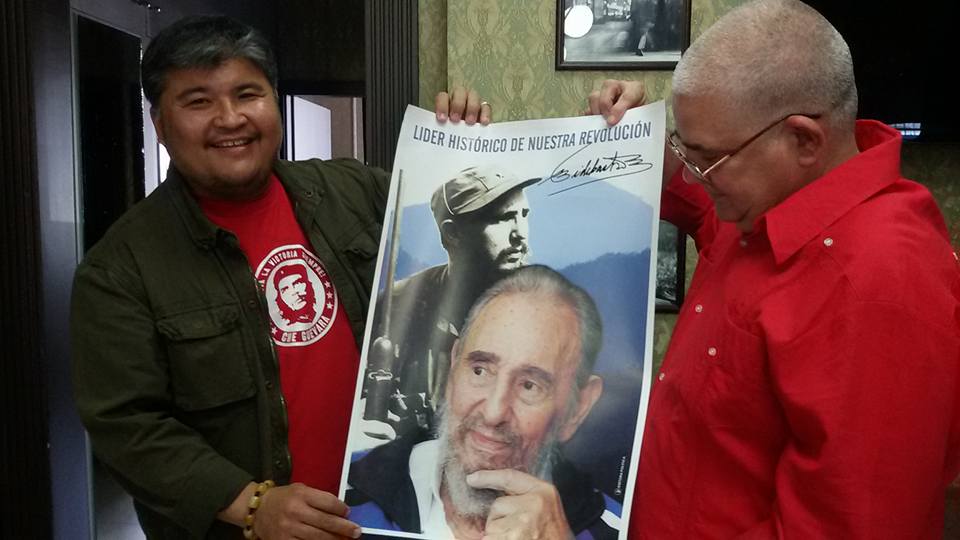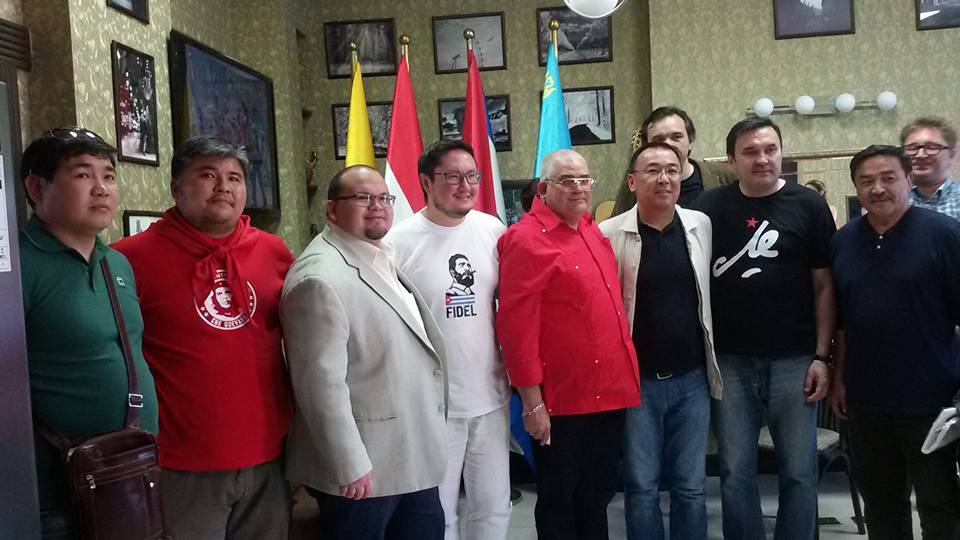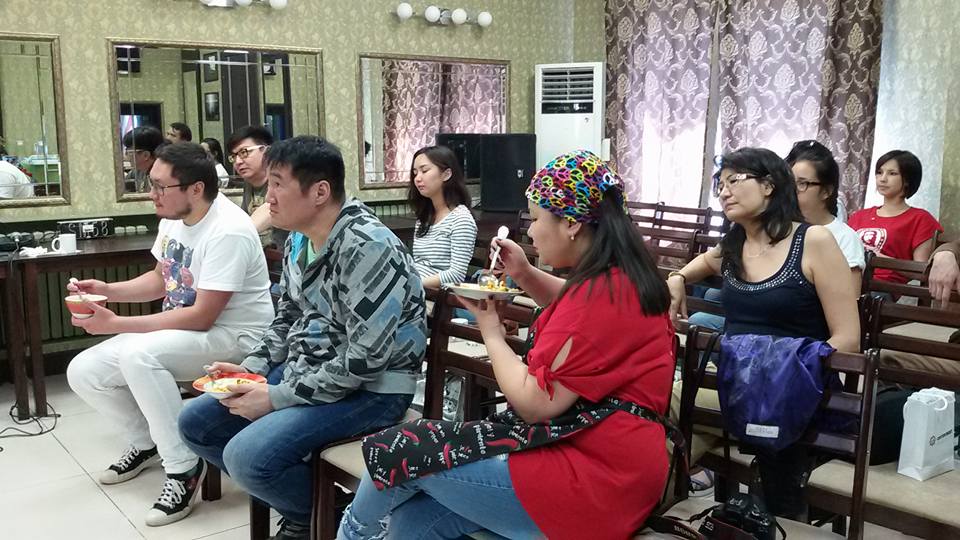ASTANA – Blogger Adlet Kumar has opened an island in the middle of landlocked Astana – a place he hopes will be an oasis for travellers, a meeting point for people from different walks of life and an island of free expression in an otherwise buttoned-up capital city.
Freedom Island, as his new venue is called, is a multipurpose meeting place, a combination of cafe, coworking site and music and discussion venue across from Astana’s Diplomatic Quarter. The door, set among a row of offices and cafes, opens into a vast kitchen – the place in the home where most relaxed conversation happens. There are cakes and cookies out, and tables wait for guests to seat themselves. The venue is purposefully homey, Kumar explained. He wants to create a space where people from many walks of life can interact freely.
“People are very closed here – all with ties, very official,” Kumar said in an interview with The Astana Times in his new venue on June 2. “But on the other hand, many of them have their own opinions and points of view, and it looks like our country is moving somehow, slowly, to some kind of real democracy. So hopefully, people will begin to express their views, to feel freer. And I hope that this will be one of the channels of communication between the power and the common people on a modern level.”
In the open kitchen and seating area, guests can work or talk, or the venue can be turned into an events hall. Beyond are living rooms or meeting rooms, and a smaller music and meditation room.
Guests are welcome to coffee and tea for free, and hungry visitors can request sandwiches or other small snacks at no charge, though Kumar says he hopes people who eat will leave a donation. The only payment is for time: 600 tenge (US$3.22) to 900 tenge (US$4.84) per hour, depending on the number of hours. Meeting and resting rooms can be rented for 1,000 tenge (US$5.37) per hour and up. They have a link with local tailors, Kumar reports, so travellers can handle last-minute sartorial emergencies.
Freedom Island is in some ways a reinterpretation of an intellectual salon. “If you want to see some civil servant, at the moment, you have only the opportunity to see him in his office or to see him in a press conference, which [doesn’t allow for] any kind of free talk,” Kumar explained. “But here, we want to make some kind of platform where they can express themselves as human beings, as they are. And not on topics like politics and economics, but on fishing or where they like to go on vacation or what they cook or what movies they like – something to show that they are human beings, so people can see that.”
Kumar, who is also known as writer, blogger and Facebook personality Ajijiro Kumano, author of “City of Flying Bags,” a critical look at Astana’s society in the years soon after the relocation of the capital, knows both sides of that coin. After a career in Kazakhstan’s Foreign Service and then KazMunayGas, he got frustrated with bureaucracy and went into business for himself. Three years ago, he said, he wound his business up and started travelling, to Japan, India and eventually to Saudi Arabia and Mecca.
Now, he explains, he wants to do something settled, to be in one place.
“It was my dream to open here in the middle of Astana a place where people can feel free,” Kumar said. He has big plans for his island: he wants to launch a Speaker’s Corner, and perhaps to create a club, so members can have first dibs on tickets to different events; he wants to bring musicians to the intimate venue.
Appropriately, the new venue launched May 30 with a Cuba-themed gathering. Cuban Ambassador to Kazakhstan Carlos Enrique Valdés de la Concepción addressed the audience, discussing Cuban-American relations and the ongoing normalisation, about which he was very positive, Kumar reported. “For us, it was nice to see real Communists … true believers,” he said. “It’s nice, because they really believe, but their minds are open, they understand. For example, when the ambassador talked about relations with the U.S., he was very positive. But at the same time, he showed that they would do everything step by step. ‘We won’t rush, we have our national interests.’ And he showed that very simply, without slogans.”
Another speaker was a local man whose father had been a fighter pilot during the Cuban Missile Crisis in 1962. It is these stories that Kumar seems passionate about sharing. “These people live here, actually, and we don’t know them, which is really bad,” he said. “I want to try to bring simple stories from simple people here.”
And the politicians and high officials he wants to invite – he wants to reveal them as “simple people,” as well. An official at Kazakhstan’s Ministry of Oil and Gas is an avid fisherman – Kumar wants to invite him to speak about fishing, just fishing. He hopes to bring a high-ranking executive from KazMunayGas who is also a well-known dandy to speak at a planned event about tailoring, formal dress and protocol.
As for the potential controversy in opening a venue dedicated to free, informal speech, Kumar brushes it off. “I already attracted attention years ago with my book, which describes the period when we moved from Almaty to here,” he said. He criticised the system, and nothing happened to him, he said. “It’s more like self-censorship, or people are afraid of something like a [boogeyman] from children’s books.” Just expressing a point of view is not something anyone has cause to be afraid to do.
“I am for the state, I am for good governance,” Kumar explained. “And I know there are many people in the government, in the system, who want to change it for the better.”
